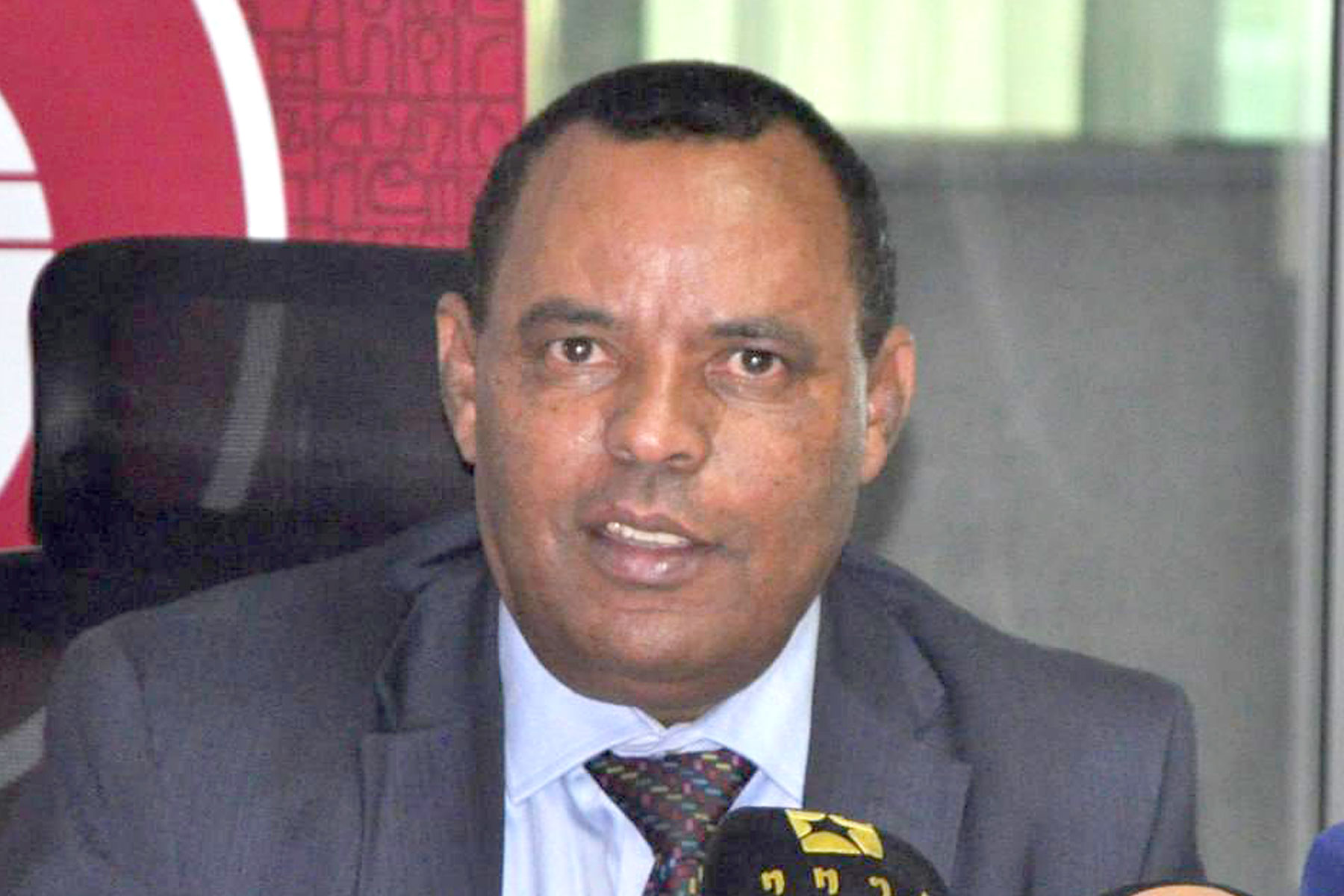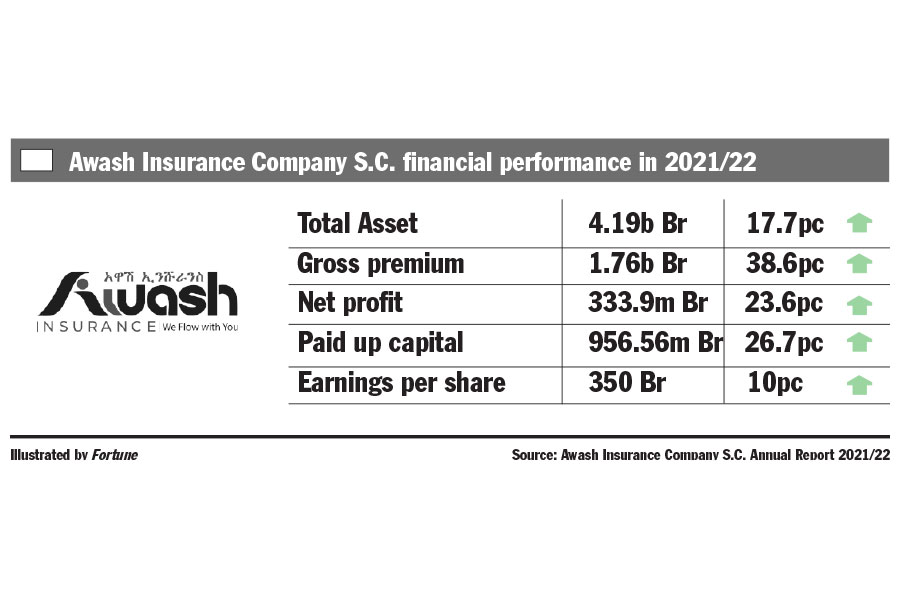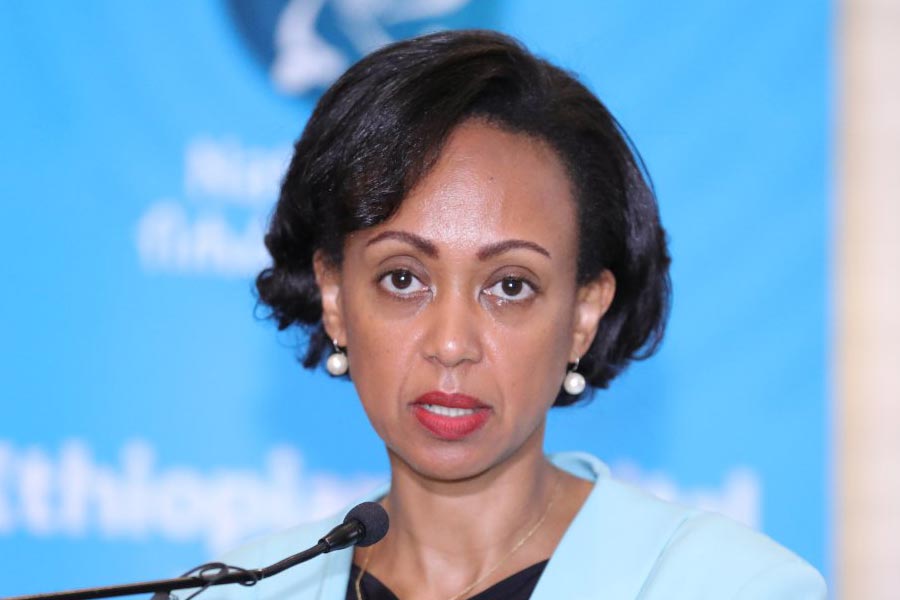
Radar | Aug 07,2025
Jan 29 , 2022.
The scourge of inflation is rising globally, terrifying politicians and their macroeconomic advisors. The United States consumer price index has reached seven percent, the highest in four decades. Ethiopia's latest year-on-year inflation figure for December shows headline inflation above 35pc and food at 41.6pc. Ethiopia's inflation is at a record high in a decade.
All but a few people in Ethiopia would assume that there is a correlation between the inflationary trends in the most advanced and rich economy and the one that is poor and underdeveloped. But the unprecedented speed of globalisation over the past few decades means that the latter's economy may come under tremendous stress for reasons outside the control of its policymakers. Emphasizing that Ethiopia's policymakers should closely follow how inflation, interest rate and the price of oil in the global market move can only be an understatement.
Ethiopia has a macroeconomic team chaired by the Prime Minister. However, Girma Birru, an old hand in the policymaking circle for over two decades, commands sway when it comes to the nitty-gritty of macroeconomic policies. He is a revered figure in the eyes of policymakers such as Yinager Dessie (PhD), governor of the central bank, Ahmed Shedie, minister of Finance, and Fitsum Assefa (PhD), minister of Planning. The weight of the country's economy is on their shoulders as the fate of over 100 million people will be determined by these individuals' actions - or inactions -. Indeed, Eyob Tekalegn (PhD) and Nemera Mamo (PhD), states ministers of finance and planning, respectively, are the young and rising figures in the policymaking circle. Their views and recommendations are no less consequential.
These are all individuals trained in Western and liberal schools of economics. It should not be lost on them what is available in the policy menu to pick, from demand-side to supply-side and monetarism to inflationary targeting economics. Battered by the impacts of the COVID-19 pandemic and devastated by tragic civil war, Ethiopia's economy suffers from a classic case of high inflation and high unemployment. Ethiopia presents a scenario for a curious economics professor to coin a new word in the economics lexicon other than "stagflation".
It should be worrying that more blows are on their way but external in the source.
The price of crude oil in the global market is rising, surpassing 80 dollars a barrel last week. It is a piece of bad news for a country like Ethiopia, where almost all its foreign currency earnings from exports are zeroed by the bills to cover the imports of fuel. Further increases in the oil prices will inevitably erode the meagre foreign currency reserve the country struggles to keep up. The inevitability comes from an inflationary trend across economies globally, poor alike rich.
A high inflation rate in the world's biggest economy will likely prompt the US Federal Reserve to act. Its Chairperson, Jerome Powell, is convinced that the inflationary pressure is no longer “transitory.” He indicated that a rate hike is due soon. The consequence of this is higher borrowing costs to reduce the amount of money in circulation. In any other country except China and the US, such a move by a foreign central bank may have little meaning to a country such as Ethiopia. When either of the world’s two largest economies alters monetary policies, though, it will be felt by nearly everyone else.
Ethiopia's policymakers should look at this development as a new cycle of expensive borrowing costs in contrast to the cheap loans that underpinned the COVID pandemic era of monetary and fiscal expansionism. The same could take place in Europe, based on the appetite of the EU’s central bank to ward inflation off.
Ethiopia’s government is in no position to seek and qualify for commercial loans, given that its current debt stress and political situation are least attractive to any lender. But this will not matter. Higher borrowing costs in the US and the EU zone will mean a stronger Dollar, making repayment of existing debt denominated in these currencies harder. Dollar-denominated debt is already 25pc more expensive in Birr terms than a year ago. The cost of existing debt may increase further for this year and the coming years.
One structural obstacle to Ethiopia's growth is the foreign currency crisis, save for the civil war. Pressures on the foreign currency reserve will make necessary investments for development ever harder to realise. Worse, it could spill over into debt default, one of the worst things a country can do to its economy. International creditors do not have a short memory. They see a country that defaults, whatever the circumstances, is a country willing to default.
Ethiopia's policy advisors and makers should internalise that a dark and powerful storm is hovering. Inactions, as the case with the macroeconomic team, and knee-jerk responses as the central bank is famous for, are not the way to go about salvaging the economy from the brink of disaster. They can start by adopting a grand strategy picking one from the policy menu. They would not need to reinvent the wheel. Understanding the depth and scope of the problem is halfway through charting the economy to a stable destination.
They can also aim for low hanging fruits in the meantime. They work hard to get debt restructuring agreements under the G20 Common Framework. Nonetheless, with the current diplomatic fallout with the Transatlantic powers and lack of clarity of procedures with the framework itself, this may not arrive to meet the desperate situation. It will also be a dereliction of duty if the policymakers leave the possibility of Ethiopia’s default to the framework by remaining passive. They should know they owe to the suffering and plight of tens of millions of Ethiopians in whose name they swore to serve. It is time to be proactive.
One blessing of the current global inflationary pressure could be that commodity prices are also up. For an exporter of agricultural produces, this has meant that coffee export revenues are almost twice as high as they were last year at 578 million dollars. No wonder exporters are now required to surrender 70pc of their foreign currency earnings in their retention accounts to the central bank, a counterproductive - desperate nonetheless - policy choice.
But these are windfalls and not an actual increase in export value-addition or output. The price of coffee will come back down to its usual price as supply chain issues are addressed, and Brazil ramps up the export.
The most straightforward way to maintain foreign currency reserve needs is to grow and formalise remittances. The administration may be instinctive about its "Great Ethiopian Homecoming" campaign. But it was highly politicised. Creating a more inclusive political space could cast a wider net and grow the remittance pie. No less important is to follow a more innovative approach to encourage the diaspora communities' involvement in the economy. This could be about issuing "diaspora bonds", perhaps to be channelled to the Ethiopian Investment Holdings, which aims to become a sovereign wealth fund. But such a strategy needs a much better insight into the diaspora demographics, including per capita remittance and investment preferences. The biggest tragedy today is that as rarely as the diaspora invest, when they do, it is in Addis Abeba’s already bloated and speculative luxury real estate market.
Even then, the consequence of the Dollar's volatility may not be contained. It may not even strengthen in value as expected. The only thing certain in these times is the stubbornness of uncertainty. It makes the job of the policymakers all the more complex but critical no less. The central bank, in particular needs, to become a bulwark of certainty that can be relayed on to mitigate risks proactively. Sadly, the National Bank of Ethiopia (NBE) is not doing well. It is most often seen adjusting and re-adjusting directives by the month, adding to the uncertainty. There is no better example of this than how it has changed foreign currency retention rules three times in just about a year, increasingly in its favour.
There is no doubt that the past two years have been highly unprecedented. But they should also be an opportunity to learn. Long-term predictability could be a thing of the past. The best weapon against this is a thoughtful, deliberated and forward-looking macroeconomic strategy. Despite the harsh currents, nothing passes better than a sense of direction people would like to have. Tragically, Ethiopia's policymakers appear to have been lost in the policy wilderness.
PUBLISHED ON
Jan 29,2022 [ VOL
22 , NO
1135]

Radar | Aug 07,2025

Viewpoints | Dec 26,2020

Fortune News | Aug 08,2020

News Analysis | Apr 13,2024

Fortune News | Jun 10,2023

Sunday with Eden | Jun 08,2019

Life Matters | Jul 22,2023

Fortune News | Nov 25,2023

Fortune News | Apr 06,2019

Viewpoints | Mar 26,2022

Photo Gallery | 179551 Views | May 06,2019

Photo Gallery | 169748 Views | Apr 26,2019

Photo Gallery | 160679 Views | Oct 06,2021

My Opinion | 137188 Views | Aug 14,2021

Dec 22 , 2024 . By TIZITA SHEWAFERAW
Charged with transforming colossal state-owned enterprises into modern and competitiv...

Aug 18 , 2024 . By AKSAH ITALO
Although predictable Yonas Zerihun's job in the ride-hailing service is not immune to...

Jul 28 , 2024 . By TIZITA SHEWAFERAW
Unhabitual, perhaps too many, Samuel Gebreyohannes, 38, used to occasionally enjoy a couple of beers at breakfast. However, he recently swit...

Jul 13 , 2024 . By AKSAH ITALO
Investors who rely on tractors, trucks, and field vehicles for commuting, transporting commodities, and f...

Oct 25 , 2025 . By YITBAREK GETACHEW
Officials of the Addis Abeba's Education Bureau have embarked on an ambitious experim...

Oct 26 , 2025 . By YITBAREK GETACHEW
The federal government is making a landmark shift in its investment incentive regime...

Oct 29 , 2025 . By NAHOM AYELE
The National Bank of Ethiopia (NBE) is preparing to issue a directive that will funda...

Oct 26 , 2025 . By SURAFEL MULUGETA
A community of booksellers shadowing the Ethiopian National Theatre has been jolted b...